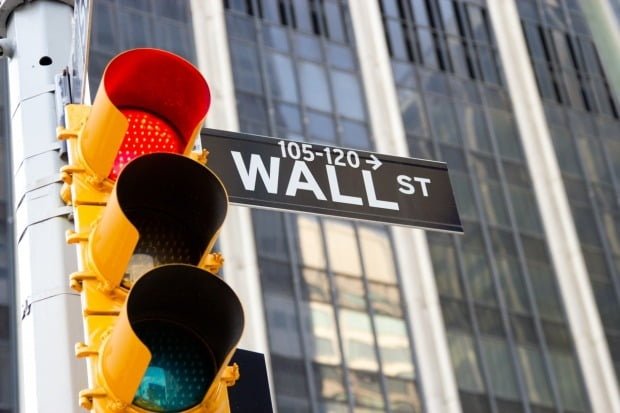
(Photo = Getty Image Bank)
As the US 10-year Treasury bond rate surpassed 1.7%, the stock market turned upside down. Sales poured out mainly in the sectors that respond most sensitively to rising interest rates. Electric vehicle sectors such as Tesla, which recently had a high performance level (valuation) burden compared to the stock price, have fallen, and solar-related stocks have also declined. Large tech stocks also could not avoid the direct hit of rising interest rates.
Major indices plunged due to a re-surge in US Treasury yields
On the 18th (local time) on the New York Stock Exchange (NYSE), the Dow Jones 30 Industrial Average fell 153.07 points (0.46%) from the previous trading day to 32,862.30. The Standard & Poor’s (S&P) 500 index fell 58.66 points (1.48%) to 3,915.46, while the Nasdaq index fell 409.03 points (3.02%) to 13,116.17.
The rise in government bond yields, which showed an easing as the US central bank (Fed) nailed a long-term low interest rate policy the previous day, sharpened in one day.
The US 10-year Treasury bond rate soared, surpassing 1.75% at the beginning of the market. Even at the close of the stock market, it surpassed 1.7%. The 30-year Treasury bond rate once exceeded 2.5%, the highest since 2019. It has risen sharply mainly due to long-term interest rates.
Although the Fed has repeatedly made easing remarks, it is interpreted that market concerns about rising inflation (inflation) have not been resolved. In addition, it is also negative that the Fed is forecasting stronger-than-expected inflation as it raises its growth rate and inflation forecast this year. If inflation rises strongly, it can be interpreted as meaning that the Fed can accelerate the tightening period.
On the other hand, if the Fed maintains an easing position, inflation expectations may rise further and market interest rates may be linked to a rise in the situation.
As government bond yields soared, anxiety about technology stocks grew again. When the interest rate of government bonds (safe assets) rises, the attractiveness of investing in stocks (risk assets) decreases. This is because there is no reason to take risks and invest in stocks. In particular, it is a factor that increases the valuation burden of overvalued technology stocks.
Seo Sang-young, a researcher at Kiwoom Securities, said, “The US 10-year Treasury bond rate recorded 1.75%, a 14-month high during the intraday.”
Large tech stocks plunge… Electric vehicles, solar power, etc. also declined

GettyImagesBank
Large technology stocks fell one after another due to the rise in government bond yields. Amazon dropped 107.74 per share (3.44%) to $3027.99 per share from the previous day, while Apple also fell $4.23 per share (3.39%) to $120.53. Google’s parent company Alphabet (-2.92%) and Microsoft (-2.67%) also fell.
The electric vehicle industry also fell. Nicola closed the deal for $14.78, down $1.61 (9.82%) from the previous day. This is because the news that Hanwha Group will sell some of its shares held in the second half of the year. On the 17th (local time), Nikola announced that Hanwha plans to sell 10.05 million shares, 50% of its holdings.
Another electric car owner, Tesla, recorded 653.16, down $48.65 per share (6.93%) from the previous day. Nio also closed at $41.63, down $3.13 per share (6.99%) over the same period. The solar industry, First Solar (-3.16%) and Sun Power (-7.87%), also fell, while Bitcoin-related stocks PayPal (-5.19%) and MicroStrategy (-5.05%) and Square (-8.99%) also fell.
As international oil prices plummeted, refined stocks also fell. ExxonMobil closed the deal at 56.81, down $2.56 per share (4.31%) from the previous day. Konoko Phillips also fell by more than 6%. Conflicts between the US and Russia and concerns over supply and demand for a new coronavirus infectious disease (Corona 19) vaccine in Europe are the reasons for the sharp decline in oil prices.
On the other hand, as Treasury bond yields rose, Bank of America (2.61%) and JP Morgan (1.65%) rose. As interest rates rise, banks’ profits are more likely to improve.
Song-ryul Lee, reporter of Hankyung.com [email protected]
